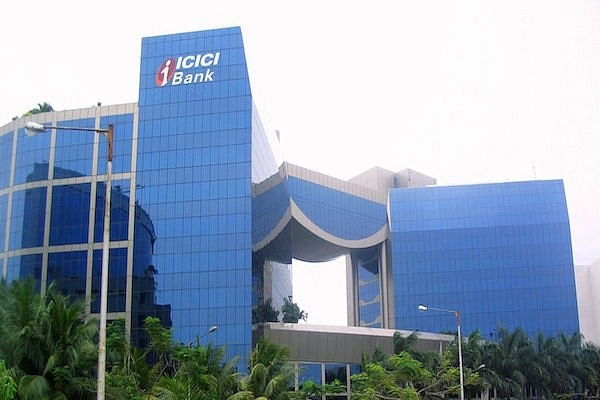Business
India’s Pvt Banks Are Now Worth More Than Most Big EU Banks; Time To Buy?
- Thanks to the weak economic prospects of the European Union, and thanks to Brexit, many of Europe’s banks are struggling to deliver good returns.
- This could thus be the right time for well-capitalised and profitable Indian banks to go global through acquisitions.
- If there ever was a time for aggressive Indian banks to look at European acquisitions, it is now.

Image Credit: Wikimedia Commons
An
interesting thing has happened in European banking. Thanks to the weak economic
prospects of the European Union (EU), and thanks to Brexit, many of its banks
are struggling to deliver good returns. Their share prices are down in the
dumps. Not surprising, since many of their assets may have gone to the dogs –
or rather the PIIGS, Portugal, Italy, Ireland, Greece and Spain.
This could thus be the right time for well-capitalised and profitable Indian banks to go global through acquisitions. We are, of course, not talking of the sick public sector banks but robust private ones. A Business Standard comparison of the market capitalisation of European banks versus HDFC Bank shows that the latter is worth more than Deutsche Bank and Credit Suisse put together, with a market value of $46 billion today (19 July) versus $18 billion and $24 billion respectively.
At least three private Indian banks, ICICI Bank ($23 billion), Kotak Mahindra ($21 billion), and Axis Bank ($20 billion) are more valuable that Germany’s biggest bank today. In the European league of banks, HDFC Bank would figure at No 6 today. It is bigger than Ing Group, Barclays, Deutsche, and Credit Suisse, and possibly about to overhaul UBS and Lloyds too. That would make it No 4 in European rankings today.
The market capitalisation of HDFC Bank and its parent HDFC, if combined, would top all European Banks barring HSBC, with a valuation of around $77 billion (HSBC: $95 billion as on Tuesday, 19 July).
British banks, reeling under the shock of Brexit, including Barclays, Standard Chartered and Royal Bank of Scotland, all look like ripe targets.
The markets may be manic-depressive when it comes to valuing stocks, for the long-term values of many European banks may surely be more than what their current share prices indicate. But that is precisely why acquisitions may make sense. You consider buying them when valuations are right, not when they are bloated.
Six years ago, P Chidambaram wondered why State Bank of India (SBI) didn’t consider buying a Citibank after the 2008 financial crisis when the latter’s share prices had crashed to $ 1. He was actually asking a foolish question, for the real cost of buying a bank is not its market value, but a mix of its share price and underlying net liabilities, including current and future bad loans.
If SBI had actually have bought Citi when its share prices crashed, it would have gone under by now, as Citi needed rescuing with large infusions of capital, which only Uncle Sam could provide at that time. If SBI had bought Citi, Uncle Sam would probably own SBI too. Or rather Citi would, not that it is out of government control. It would have been a disaster.
So, the fact that Indian banks are valued higher than many European banks does not mean every purchase today would make sense. That depends on synergies, prospects for long-term growth, the level of additional capitalisation required to stabilise Europe’s tottering banks, etc.
Nor is it likely that European governments will allow Indian banks to acquire banks they consider as national crown jewels.
But, if there ever was a time for aggressive Indian banks to look at European acquisitions, it is now.
Introducing ElectionsHQ + 50 Ground Reports Project
The 2024 elections might seem easy to guess, but there are some important questions that shouldn't be missed.
Do freebies still sway voters? Do people prioritise infrastructure when voting? How will Punjab vote?
The answers to these questions provide great insights into where we, as a country, are headed in the years to come.
Swarajya is starting a project with an aim to do 50 solid ground stories and a smart commentary service on WhatsApp, a one-of-a-kind. We'd love your support during this election season.
Click below to contribute.
Latest